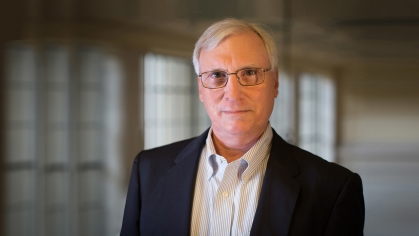INTEGRATIVE SYSTEMS ANALYSIS OF HOST IMMUNE FUNCTIONSIN PATHOGEN INFECTIONS AND VACCINES

Douglas Lauffenburg, Ph.D.
Ford Professor
Massachusetts Institute of Technology
Seminar Abstract: Because of the complexity of immune responses to pathogens, our ability to gain insights and principles from experimental interrogation of blood and tissue samples, from human subjects as well as animal models, can be enhanced by computational analysis and modeling embracing an integrative systems perspective. Motivation for combined experimental/computational systems analysis of multi-modal immune response data derives from fundamental issues: concomitant contributions from multiple molecular and cellular features together govern observed responses, rather than any single feature being determinative by itself; and these multi-feature contributions typically are not independent but instead highly covarying. Computational modeling approaches rooted in ‘machine learning’ accommodate these issues and in fact offer enhanced capabilities in statistical power and biological interpretation. This talk will offer examples of application of this integrative systems immunology approach to a variety of collaborative studies of host immune response studies in pathogen infections and vaccines.
Bio: Douglas Lauffenburger is Ford Professor of Bioengineering in the Departments of Biological Engineering and Biology at MIT. The Lauffenburger research program centers on systems biology approaches to cell-cell communication and cell signaling in pathophysiology, emphasizing translational application to therapeutics discovery and development in cancer, pathogen infection, and inflammatory disease. More than 130 doctoral students and postdoctoral associates have undertaken research education under his supervision. He is a member of the National Academy of Engineering and American Academy of Arts & Sciences, and a fellow of the American Association for Advancement of Science and the American Scientific Affiliation. Lauffenburger has served as President of the Biomedical Engineering Society, Chair of the College of Fellows of American Institute for Medical & Biological Engineering, on the Advisory Council for the National Institute of General Medical Sciences, and as a co-author of the 2009 National Research Council report A New Biology for the 21st Century.